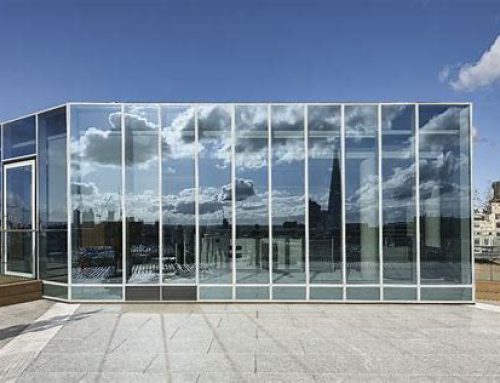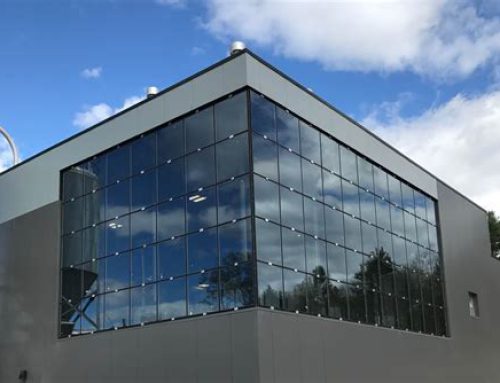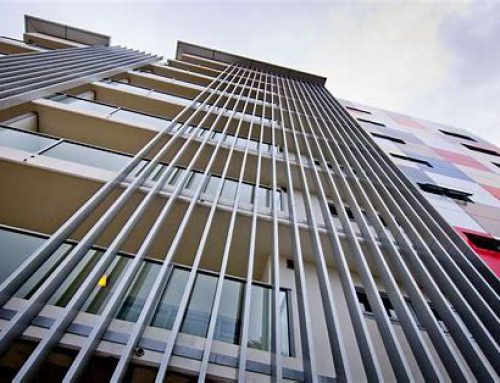Manufacturing Aluminium Products in the Middle East
Introduction

Manufacturing aluminium products in Middle East ,The Middle East is a region known for its rich history, diverse cultures, and abundant natural resources. In recent years, it has also emerged as a significant player in the global manufacturing industry, particularly in the production of aluminum products. With a focus on sustainable development and a strategic geographical location, the Middle East has become an attractive hub for aluminum manufacturing. In this article, we will explore the reasons behind the growth of aluminum manufacturing in the Middle East and its implications for the region and the world.
Abundant Resources
One of the primary drivers behind the growth of aluminum manufacturing in the Middle East is the region’s access to abundant and high-quality raw materials. The Middle East boasts significant reserves of bauxite, the primary ore used to produce aluminum, along with ample supplies of energy resources such as natural gas. This availability of essential resources has allowed the region to develop a competitive advantage in aluminum production.
Strategic Location
The Middle East’s strategic geographical location positions it as a central hub for trade between Europe, Asia, and Africa. This geographical advantage has not only facilitated the import of raw materials but also the export of finished aluminum products to global markets. Major ports in the region, such as Dubai’s Jebel Ali Port and Saudi Arabia’s King Abdullah Port, have become vital transportation hubs for aluminum products, enabling efficient distribution to international markets.
Investment in Infrastructure
Governments in the Middle East have recognized the potential of the aluminum industry and have made significant investments in infrastructure and manufacturing facilities. The construction of state-of-the-art smelters, refineries, and processing plants has allowed the region to achieve economies of scale and compete with established players in the global aluminum market.
Sustainable Practices
Sustainability has become a key focus for the aluminum industry worldwide, and the Middle East is no exception. The region’s abundant natural gas reserves have made it a prime location for the development of energy-efficient and environmentally friendly aluminum production processes. Many Middle Eastern aluminum manufacturers have adopted technologies that reduce greenhouse gas emissions and minimize the environmental impact of their operations.
Job Creation and Economic Diversification
The growth of the aluminum manufacturing sector in the Middle East has had a positive impact on the region’s economies. This industry has created numerous job opportunities, from skilled labor in the manufacturing plants to administrative roles in support functions. Additionally, the diversification of the economy away from oil and gas revenue dependency has been a priority for many Middle Eastern countries, and the aluminum sector has played a significant role in achieving this goal.
Global Impact
The rise of aluminum manufacturing in the Middle East has not only benefited the region but also had a global impact. Middle Eastern aluminum products are now exported to countries around the world, supporting industries in diverse sectors such as automotive, construction, aerospace, and packaging. This has contributed to the global supply chain, making aluminum more accessible and affordable for businesses and consumers worldwide.
Challenges and Future Prospects
While the Middle East’s aluminum manufacturing industry has experienced significant growth, it also faces challenges, including competition from established aluminum-producing regions and fluctuations in global aluminum prices. To remain competitive, Middle Eastern manufacturers must continue to invest in technology, research, and development to improve efficiency and product quality.
In the coming years, the Middle East’s aluminum manufacturing sector is poised to expand further, driven by both domestic and global factors. Here are some key considerations for the future of this industry in the region:
- Technological Advancements: Continuous investments in research and development will be essential for Middle Eastern aluminum manufacturers to remain competitive on a global scale. This includes adopting cutting-edge technologies for smelting, recycling, and alloy development. Advancements in 3D printing and lightweight aluminum alloys, for instance, can open up new opportunities in sectors like aerospace and automotive.
- Sustainability Initiatives: As global environmental concerns continue to grow, sustainability will play a pivotal role in the Middle East’s aluminum industry. Manufacturers will need to focus on reducing their carbon footprint, implementing circular economy practices, and adhering to international sustainability standards. By doing so, they can appeal to environmentally-conscious markets and customers worldwide.
- Market Diversification: While aluminum products have a wide range of applications, diversifying into niche markets can be a strategic move for Middle Eastern manufacturers. Exploring sectors such as renewable energy, electronics, and consumer goods can provide new revenue streams and reduce dependency on any single market.
- Supply Chain Resilience: Recent disruptions in global supply chains have highlighted the importance of building resilient and diversified supply networks. Middle Eastern manufacturers should focus on enhancing their supply chain management, ensuring consistent access to raw materials, and minimizing vulnerability to external shocks.
- Education and Workforce Development: A skilled workforce is crucial for the continued growth of the aluminum industry in the Middle East. Governments and industry stakeholders should invest in education and training programs to cultivate the necessary technical and managerial talent. This not only benefits the industry but also contributes to the overall development of human capital in the region.
- Trade Agreements: Engaging in trade agreements and partnerships with other aluminum-producing regions can provide Middle Eastern manufacturers with access to new markets and technologies. These agreements can promote international cooperation and facilitate the exchange of knowledge and expertise.
In conclusion, the Middle East’s aluminum manufacturing industry has risen as a significant player on the global stage, driven by abundant resources, strategic location, and a commitment to sustainability. As the industry continues to evolve, addressing challenges and seizing opportunities will be essential for long-term success. By embracing innovation, sustainability, and global collaboration, Middle Eastern aluminum manufacturers can look forward to a prosperous future, contributing not only to their own economic growth but also to the global aluminum industry’s advancement , Manufacturing aluminium products in Middle East.





Leave A Comment